
The politics of New Zealand function within a framework of a unitary parliamentary representative democracy. The structure of government is based on the Westminster system, and the legal system is modelled on the common law of England. New Zealand is a constitutional monarchy, in which Queen Elizabeth II is the sovereign and head of state.

Politics of Niue takes place in a framework of a parliamentary representative democratic dependency, whereby the Chief Minister is the head of government, and of a non-partisan system. Niue is self-governing in free association with New Zealand and is fully responsible for internal affairs. New Zealand retains some responsibility for external affairs, in consultation with Niue. The Niue Constitution Act 1974 (NZ) vests executive authority in Her Majesty the Queen in Right of New Zealand and the Governor-General of New Zealand. The constitution specifies that in everyday practice, it is exercised by a Cabinet of the Premier of Niue and three other ministers. The premier and ministers must be members of the Niue Assembly, the nation's legislative assembly. The Judiciary is independent of the executive and the legislature.

The University of Waikato, is a public research university in Hamilton, New Zealand established in 1964. An additional campus is located in Tauranga. The university performs research in the disciplines of education, social sciences, and management and is an innovator in environmental science, marine and freshwater ecology, engineering and computer science. It offers degrees in health, engineering, computer science, management, Māori and Indigenous Studies, the arts, psychology, social sciences and education.

Dame Sian Seerpoohi Elias is a New Zealand former Government official, who served as the 12th Chief Justice of New Zealand, and was therefore the most senior member of the country's judiciary. She was the presiding judge of the Supreme Court of New Zealand and on several occasions acted as Administrator of the Government.

The Māori King Movement, called the Kīngitanga or Kiingitanga in Māori, is a movement that arose among some of the Māori tribes of New Zealand in the central North Island in the 1850s, to establish a role similar in status to that of the monarch of the British colonists, as a way of halting the alienation of Māori land. The Māori monarch technically operates in a non-constitutional capacity with no legal or judicial power within the New Zealand government, but nonetheless, is an extremely influential political and cultural figure in the country for many of its 5.5 million people, wielding significant lobbying power and mana. Reigning monarchs retain the position of paramount chief of several iwi and wield some power over these, especially within Tainui.
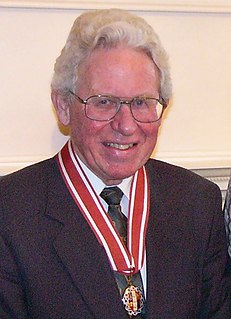
Sir Kenneth James Keith is a New Zealand judge. He was elected to the International Court of Justice in November 2005, serving a nine-year term during the years 2006 through 2015.
The law of New Zealand uses the English common law system, inherited from being a part of the British Empire.
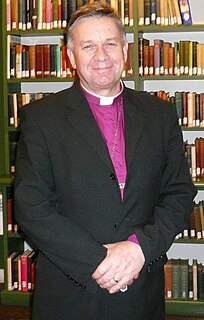
Sir David John Moxon is a New Zealand Anglican bishop. He was until June 2017, the Archbishop of Canterbury's Representative to the Holy See and Director of the Anglican Centre in Rome. He was previously the Bishop of Waikato in the Diocese of Waikato and Taranaki, the archbishop of the New Zealand dioceses and one of the three primates of the Anglican Church in Aotearoa, New Zealand and Polynesia. In the 2014 New Year Honours, he was appointed a Knight Companion of the New Zealand Order of Merit for services to the Anglican Church.

The Māori Land Court is the specialist court of record in New Zealand that hears matters relating to Māori land.
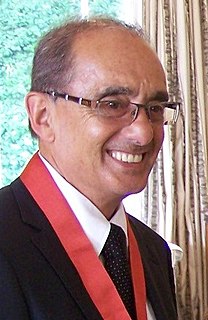
Sir Edward Taihakurei Durie Was the first Māori appointed as a Judge of a New Zealand Court. He is of Rangitāne, Ngāti Kauwhata and Ngāti Raukawa descent; Mason Durie (1889–1971) was his grandfather.
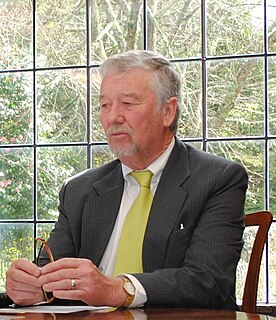
Patrick John Savage is a New Zealand Judge who served as Chief Justice of Niue from 2010 to 2018.
Francis Dart Fenton was a New Zealand magistrate, judge, public administrator and musician.

The judiciary of New Zealand is responsible for the system of courts that interprets and applies the laws of New Zealand. It has four primary functions: to provide a mechanism for dispute resolution; to deliver authoritative rulings on the meaning and application of legislation; to develop case law; and to uphold the rule of law, personal liberty and human rights. The judiciary is supported in its work by an executive department, the Ministry of Justice.

Sir Joseph Victor Williams is a judge and the first Māori person appointed to the Supreme Court of New Zealand. He is of Ngāti Pūkenga and Te Arawa descent.

The court system of Niue is a three-tiered judicial system established by the Niue Constitution Act in the island nation of Niue. It consists of the High Court, which has original jurisdiction to hear all criminal, civil and land matters, the Court of Appeal, which has appellate civil and criminal jurisdiction, and the Privy Council in England. Justices interpret the law subject to the Constitution of Niue, and if they determine a law violates the Constitution then the Constitution takes precedence. A system of common law is used in the court system, and the Doctrine of Precedent ensures that lower courts follow the precedent of upper courts. The civil and criminal courts operate under an adversarial legal system, while the land courts operate under an inquisitive legal system.
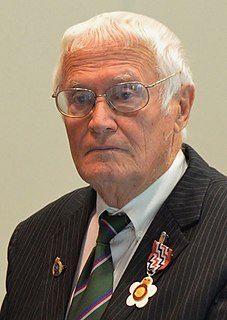
Kenneth Heta Hingston was a New Zealand lawyer and jurist. He served as a judge of the Māori Land Court from 1984 to 1999, and as Chief Justice of Niue until 2010.

The High Court of the Cook Islands is the court of first instance in the Cook Islands. It has general jurisdiction and responsibility under the Constitution of the Cook Islands for the administration of justice in the Cook Islands. The Court is established by part IV of the Constitution of the Cook Islands.
Sir David Lance Tompkins is a New Zealand lawyer and jurist. He served as a judge of the High Court of New Zealand from 1983 and 1997, and also on the benches of the Courts of Appeal of Tonga and Fiji. He was chancellor of the University of Waikato between 1981 and 1985.
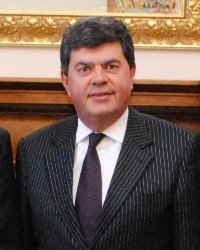
Mark Leslie Smith Cooper is a New Zealand jurist. He was appointed a High Court judge in 2004, and a judge of the Court of Appeal in 2014. He has been president of the Court of Appeal since 26 April 2022.















